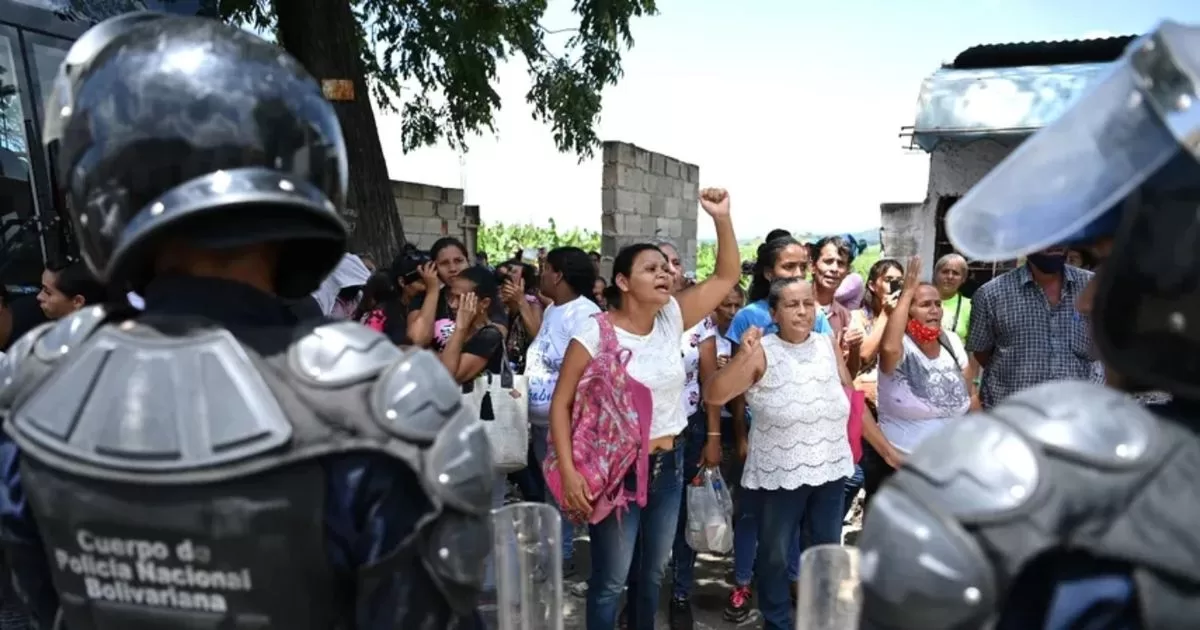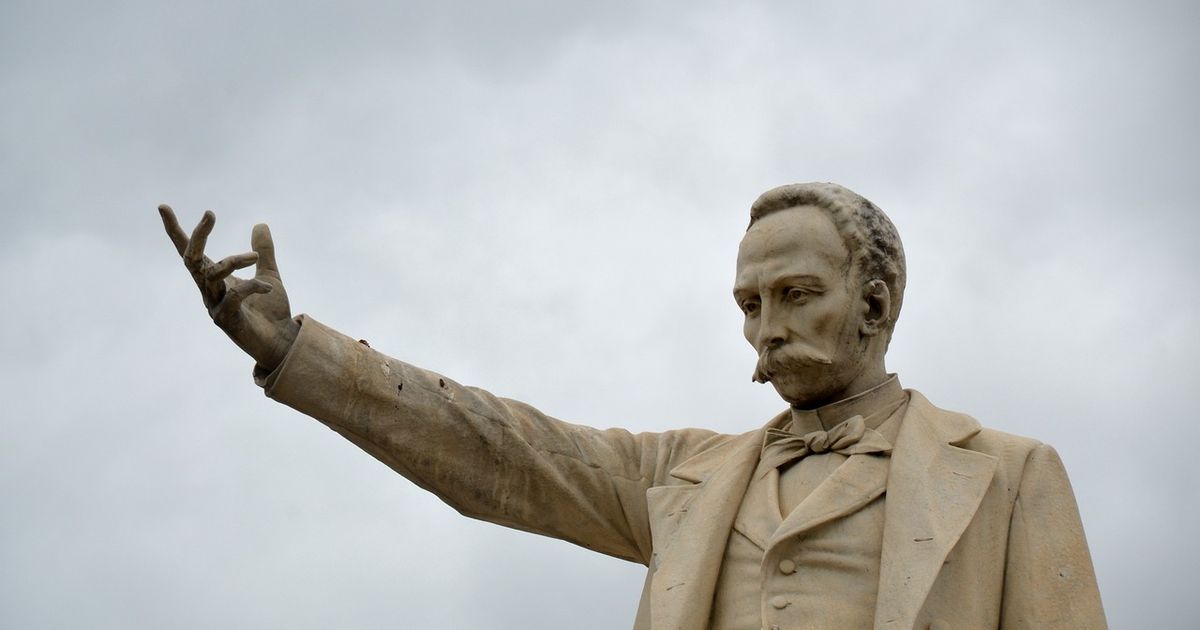The human rights theme for this year is “Dignity, freedom and justice for all people.” From the United Nations Organization (HER) indicate that, although human rights have been recognized for decades and a protection system has been established for vulnerable groups, the declaration of equal rights and dignity, “has been suffering a constant attack in recent years.”
Human rights are acquired by all people regardless of conditions such as race, sex, ethnicity, language, nationality or religion: these are inherent rights from birth.
According to the UN, there are two major classifications of human rights: civil and political rights, and economic, social and cultural rights.
Regarding civil and political rights, the 1976 International Covenant states that “they protect individual freedoms and guarantee that any citizen can participate in social and political life on a condition of equality and without discrimination.” It then refers to freedom of movement, equality before the law, the right to a fair trial and the presumption of innocence; the freedom of thought, conscience and religion.
They also cover rights such as freedom of opinion and freedom of expression; the peaceful assembly; freedom of association; and participation in public affairs and elections. Civil and political rights include the protection of the rights of minorities, and prohibit deprivation of life, torture, cruel or degrading treatment or punishment, slavery and forced labor, arbitrary detention or imprisonment, discrimination and the apology of racial and religious hatred.
Economic human rights
For their part, economic and cultural rights, enshrined since 1948, include the right to decent housing, food and work. This points towards the right to work under fair and favorable conditions; to social protection, an adequate standard of living and the enjoyment of the highest possible level of physical and mental health.
Another aspect of the Universal Declaration of Human rights of 1948 refers to the right to education and to enjoy the benefits derived from cultural freedom and scientific progress.
The 1951 Geneva Convention establishes the rights of refugees and establishes special international protection for people who have been forced to flee.
On November 30, in a hearing before the United States Congress, The Washington Office on Latin American Affairs (WOLA) urged to protect asylum and update immigration policies. WOLA expert Adam Isacson emphasized the danger of undermining the right to asylum for migrants fleeing violence, humanitarian crises and authoritarian governments.
Isacson pointed out that deterrence policies have not been effective. “The UN agency for refugees estimates that right now in the Western Hemisphere there are more than 22 million people on the move,” said the WOLA spokesperson.
He pointed out that neither the United States nor most countries in the region have adapted to the situation of migrants and asylum requests. “We have 659 immigration courts struggling to handle 2.2 million cases, many of them asylum cases.”
In a work published by the University of Chile, the director of the Center for Human Rights of the university, Nancy Yáñez, pointed out that “A State that cannot guarantee human rights is a State that is not democratic and a non-democratic State is not legitimate, it may be legal, but it is not legitimate.”
At this point, it is the agents of the State who violate human rights and this occurs when human rights obligations are breached.
Human Rights in America
For 2022, Amnesty International summarized the human rights situation in America. The record emphasizes several aspects.
. The authorities of most countries did not apply measures to strengthen the protection of the right to health, despite the fact that the Covid-19 pandemic showed that health systems need important reforms. Guatemala, Honduras and Paraguay “continued to allocate alarmingly low levels of public spending on health, and their health care services were overwhelmed.”
. “Many governments in the region did not address the structural barriers causing the crisis unleashed by the pandemic: previous socioeconomic inequalities, low levels of taxation and public spending on health, and lack of access to other social determinants of health, specifically, food security, drinking water and basic infrastructure.”
Inflation was notable in Argentina, Chile, Colombia; Haiti, Honduras, Nicaragua and Venezuela.
Thus, in Cuba, food shortages forced the population to line up for hours to get basic products. Following the resurgence of cholera in Haiti, more than 40% of the population faced emergency levels of hunger.
excessive use of force
Likewise, as documented by Amnesty International, practices of excessive use of force and unlawful killings by security forces have been widespread: they were recorded particularly in low-income areas and radicalized populations in Argentina, Brazil, Colombia, USA; Mexico, Dominican Republic and Venezuela.
“In Venezuela, security forces carried out 488 alleged extrajudicial executions in various parts of the country between January and September. In Brazil, police operations caused the death of dozens of people,” Amnesty International stressed.
. Arbitrary detentions continued to be widespread in Colombia, Cuba, and Ecuador; The Savior; Mexico, Nicaragua and Venezuela.
“El Salvador authorities declared a state of emergency in March in response to a notable increase in homicides allegedly committed by gangs. The measure led to massive human rights violations, more than 60,000 arrests and the spread of unfair trials,” the organization documented.
. In Bolivia, Brazil, Colombia, Guatemala, Honduras, Mexico, Peru and Venezuela “human rights defenders were murdered.” human rights as a result of his work.”
In the US, more than 75 people were arrested in relation to the protests that took place following the death of Jayland Walker, in June, “a black man who had been shot 46 times by the police in Akron (Ohio).”
During the political crisis after the dismissal of President Pedro Castillo, 22 people lost their lives in Peru.
Within the context of repression, “in Colombia, at least 189 social leaders and human rights defenders were victims of homicide throughout the year. In Venezuela, at least 396 human rights defenders were subjected to intimidation, stigmatization and threats.”
Arrests in Nicaragua
In the case of Nicaragua, dozens of dissidents and critics who were detained were prosecuted without due process guarantees. “In Nicaragua, the authorities canceled the legal status of more than 1,000 organizations during the year, closed at least 12 universities, imprisoned journalists and harassed those who exercised political activism and belonged to the opposition,” AI said.
The organization indicated that, in Venezuela, the intelligence services and other security forces, “with the acquiescence of the judicial system, continued to arbitrarily detain, torture and inflict other types of ill-treatment on people considered opponents of the government (regime). ”.
. On freedom of expression, in 2022, there were journalists murdered in Colombia, Haiti, Mexico and Venezuela.
“Mexico experienced the deadliest year in its history for the press: at least 13 journalists were victims of homicide. In Nicaragua and Venezuela, several media outlets were arbitrarily closed,” Amnesty International said.
. The United States Supreme Court ended federal protections for abortion rights by overturning Roe v. Wade. “Following the decision, several state legislative chambers passed legislation to prohibit or restrict access to abortion.”
In Puerto Rico, five bills to restrict access to abortion failed.
. “Authorities failed to protect women and girls from entrenched gender-based violence or address impunity for such crimes,” Amnesty International emphasized. In Mexico, between January and November, 858 femicides were recorded.
@snederr
Source: United Nations / Amnesty International / University of Chile


